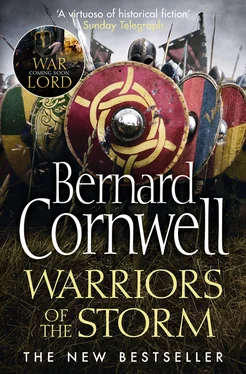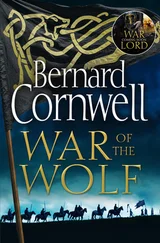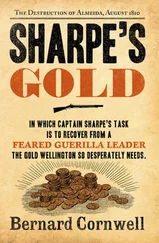BERNARD CORNWELL
Warriors of the Storm

This novel is entirely a work of fiction. The names, characters and incidents portrayed in it, while at times based on historical figures, are the work of the author’s imagination.
HarperCollins Publishers
1 London Bridge Street
London SE1 9GF
www.harpercollins.co.uk
First published by HarperCollins Publishers 2015
Copyright © Bernard Cornwell 2015
Bernard Cornwell asserts the moral right to be identified as the author of this work
Cover layout design © HarperCollins Publishers 2016
Cover illustration © Lee Gibbons/Tom Moon – www.leegibbons.co.uk
Map © John Gilkes 2015
A catalogue record for this book is available from the British Library
All rights reserved under International and Pan-American Copyright Conventions. By payment of the required fees, you have been granted the non-exclusive, non-transferable right to access and read the text of this e-book on-screen. No part of this text may be reproduced, transmitted, down-loaded, decompiled, reverse engineered, or stored in or introduced into any information storage and retrieval system, in any form or by any means, whether electronic or mechanical, now known or hereinafter invented, without the express written permission of HarperCollins e-books
Source ISBN: 9780007504091
Ebook Edition © 2016 ISBN: 9780007504084
Version: 2019-12-04
Warriors of the Storm
is for
Phil and Robert
Contents
Cover
Title Page
Copyright
Dedication
Place Names
Map
Part One: Flames on the River
Chapter One
Chapter Two
Chapter Three
Chapter Four
Chapter Five
Chapter Six
Part Two: The Ghost Fence
Chapter Seven
Chapter Eight
Chapter Nine
Chapter Ten
Part Three: War of the Brothers
Chapter Eleven
Chapter Twelve
Chapter Thirteen
Historical Note
Keep Reading …
About the Author
Also by Bernard Cornwell
About the Publisher
The spelling of place names in Anglo-Saxon England was an uncertain business, with no consistency and no agreement even about the name itself. Thus London was variously rendered as Lundonia, Lundenberg, Lundenne, Lundene, Lundenwic, Lundenceaster and Lundres. Doubtless some readers will prefer other versions of the names listed below, but I have usually employed whichever spelling is cited in either the Oxford Dictionary of English Place-Names or the Cambridge Dictionary of English Place-Names for the years nearest or contained within Alfred’s reign, AD 871–899, but even that solution is not foolproof. Hayling Island, in 956, was written as both Heilincigae and Hæglingaiggæ. Nor have I been consistent myself; I have preferred the modern form Northumbria to Norðhymbralond to avoid the suggestion that the boundaries of the ancient kingdom coincide with those of the modern county. So this list, like the spellings themselves, is capricious.
| Æsc’s Hill |
Ashdown, Berkshire |
| Alencestre |
Alcester, Warwickshire |
| Beamfleot |
Benfleet, Essex |
| Bebbanburg |
Bamburgh Castle, Northumberland |
| Brunanburh |
Bromborough, Cheshire |
| Cair Ligualid |
Carlisle, Cumbria |
| Ceaster |
Chester, Cheshire |
| Cent |
Kent |
| Contwaraburg |
Canterbury, Kent |
| Cumbraland |
Cumbria |
| Dunholm |
Durham, County Durham |
| Dyflin |
Dublin, Eire |
| Eads Byrig |
Eddisbury Hill, Cheshire |
| Eoferwic |
York, Yorkshire |
| Gleawecestre |
Gloucester, Gloucestershire |
| Hedene |
River Eden, Cumbria |
| Horn |
Hofn, Iceland |
| Hrothwulf’s farm |
Rocester, Staffordshire |
| Jorvik |
York, Yorkshire |
| Ledecestre |
Leicester, Leicestershire |
| Liccelfeld |
Lichfield, Staffordshire |
| Lindcolne |
Lincoln, Lincolnshire |
| Loch Cuan |
Strangford Lough, Northern Ireland |
| Lundene |
London |
| Mærse |
River Mersey |
| Mann |
Isle of Man |
| Sæfern |
River Severn |
| Strath Clota |
Strathclyde, Scotland |
| Use |
River Ouse |
| Wiltunscir |
Wiltshire |
| Wintanceaster |
Winchester, Hampshire |
| Wirhealum |
The Wirral, Cheshire |
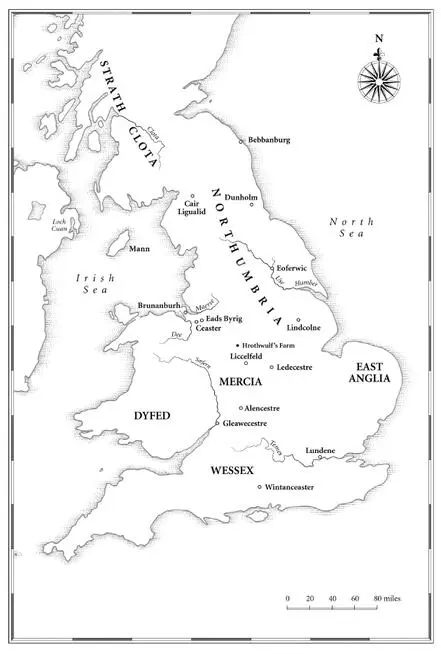
PART ONE
Flames on the River
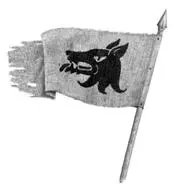
There was fire in the night. Fire that seared the sky and paled the stars. Fire that churned thick smoke across the land between the rivers.
Finan woke me. ‘Trouble,’ was all he said.
Eadith stirred and I pushed her away from me. ‘Stay there,’ I told her and rolled out from under the fleeces. I fumbled for a bearskin cloak and pulled it around my shoulders before following Finan into the street. There was no moon, just the flames reflecting from the great pall of smoke that drifted inland on the night wind. ‘We need more men on the walls,’ I said.
‘Done it,’ Finan said.
So all that was left for me to do was curse. I cursed.
‘It’s Brunanburh,’ Finan said bleakly and I cursed again.
Folk were gathering in Ceaster’s main street. Eadith had come from the house, wrapped in a great cloak and with her red hair shining in the light of the lanterns that burned at the church door. ‘What is it?’ she asked sleepily.
‘Brunanburh,’ Finan said grimly. Eadith made the sign of the cross. I had a glimpse of her naked body as her hand slipped from beneath the cloak to touch her forehead, then she clutched the heavy woollen cloth tight to her belly again.
‘Loki,’ I spoke the name aloud. He is the god of fire, whatever the Christians might tell you. And Loki is the most slippery of all the gods, a trickster who deceives, charms, betrays and hurts us. Fire is his two-edged weapon that can warm us, cook for us, scorch us, or kill us. I touched Thor’s hammer that hung from my neck. ‘Æthelstan’s there,’ I said.
‘If he lives,’ Finan said.
There was nothing to be done in the darkness. The journey to Brunanburh took at least two hours on horseback and would take longer in this dark night, when we would be stumbling through woods and possibly riding into an ambush set by the men who had fired the distant burh. All I could do was watch from Ceaster’s walls in case an attack burst from the dawn.
I did not fear such an attack. Ceaster had been built by the Romans and it was as tough a fortress as any in Britain. The Northmen would need to cross a flooded ditch and put ladders against the high stone walls, and Northmen have ever been reluctant to attack fortresses. But Brunanburh was aflame, so who knew what unlikely things the dawn might bring? Brunanburh was our newest burh, built by Æthelflaed who ruled over Mercia, and it guarded the River Mærse, which offered the Northmen’s boats an easy route into central Britain. In years past the Mærse had been busy, the oars dipping and pulling, and the dragon-headed boats surging against the river’s current to bring new warriors to the unending struggle between the Northmen and the Saxons, but Brunanburh had stopped that traffic. We kept a fleet of twelve ships there, their crews protected by Brunanburh’s thick timber walls, and the Northmen had learned to fear those ships. Now, if they landed on Britain’s west coast, they went to Wales or else to Cumbraland, which was the fierce wild country north of the Mærse.
Читать дальше
